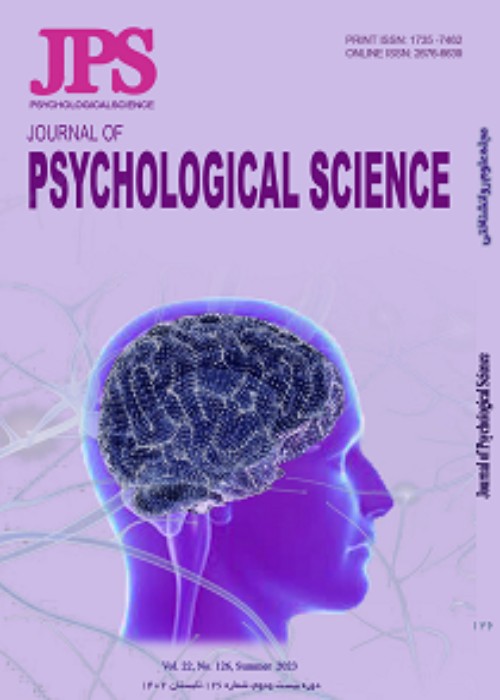Comparison of the efficacy of acceptance and commitment therapy (ACT) and mindfulness therapy on emotions control of adolescents with self-injury behaviors
Studies suggest that emotions are involved in initiating and maintaining adolescent self-injury behaviors. Although the research background refers to the positive effects of acceptance and commitment therapy and mindfulness therapy on adolescents' psychological problems, there is a research gap in the application of these two therapeutic approaches in the research community.
The aim of this study was to compare the effectiveness of acceptance and commitment therapy (ACT) and mindfulness therapy on the emotional control of adolescents with self-injury behaviors.
The research method was quasi-experimental, with a pretest-posttest design and two months of follow-up. The statistical population of the study included all female students in public schools in District 1 of Tehran. 60 people were selected by stepwise cluster sampling method and randomly divided into two experimental groups and one control group. The first experimental group (ACT) and the second experimental group (mindfulness) had 8 sessions of therapeutic interventions. The first and second experimental groups each received 8 sessions of therapy based on acceptance and commitment and therapy mindfulness therapy. The research instrument included the Inventory of Statements About Self-injury (Klonsky & Glenn, 2009) and the Emotion Control Scale (Williams et al., 1997). Data analysis was the multivariate analysis of covariance (ANCOVA) using SPSS-23 software.
In the post-test phase, both intervention methods had a significant effect on the improvement of the emotional control of adolescents with self-injury behaviors (P<0.01). In the follow-up phase, two interventions significantly improved emotional control, but there was no significant difference between the effectiveness of ACT and mindfulness therapy.
The research results showed that the ACT improved the emotional control of adolescents with self-injury behaviors by accepting emotions and preventing the avoidance of experience and the formation of committed action and healthy habits and by raising awareness of the present moment, improving the thought process, identifying and correcting negative cognitive beliefs, and providing appropriate cognitive responses.
- حق عضویت دریافتی صرف حمایت از نشریات عضو و نگهداری، تکمیل و توسعه مگیران میشود.
- پرداخت حق اشتراک و دانلود مقالات اجازه بازنشر آن در سایر رسانههای چاپی و دیجیتال را به کاربر نمیدهد.



